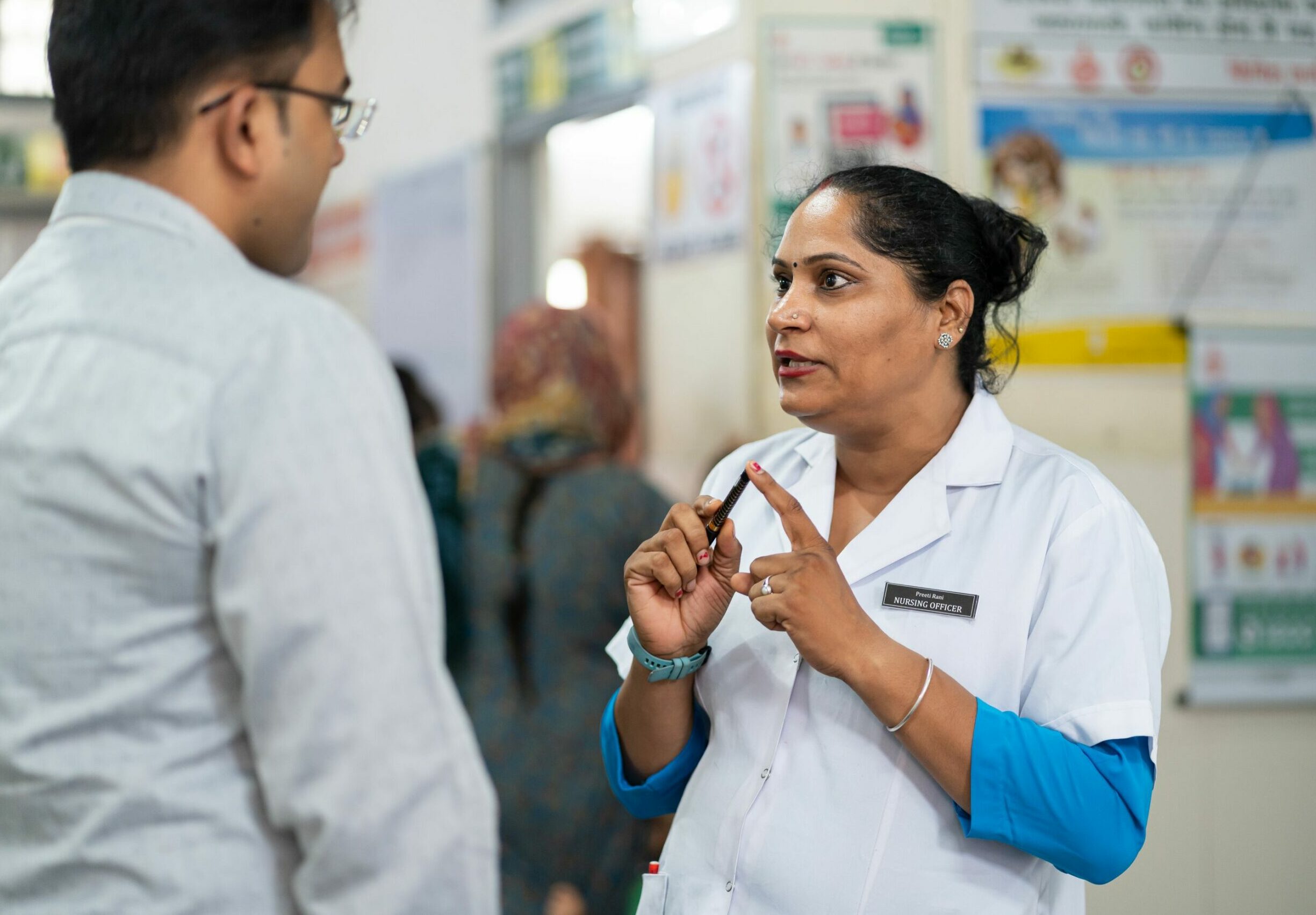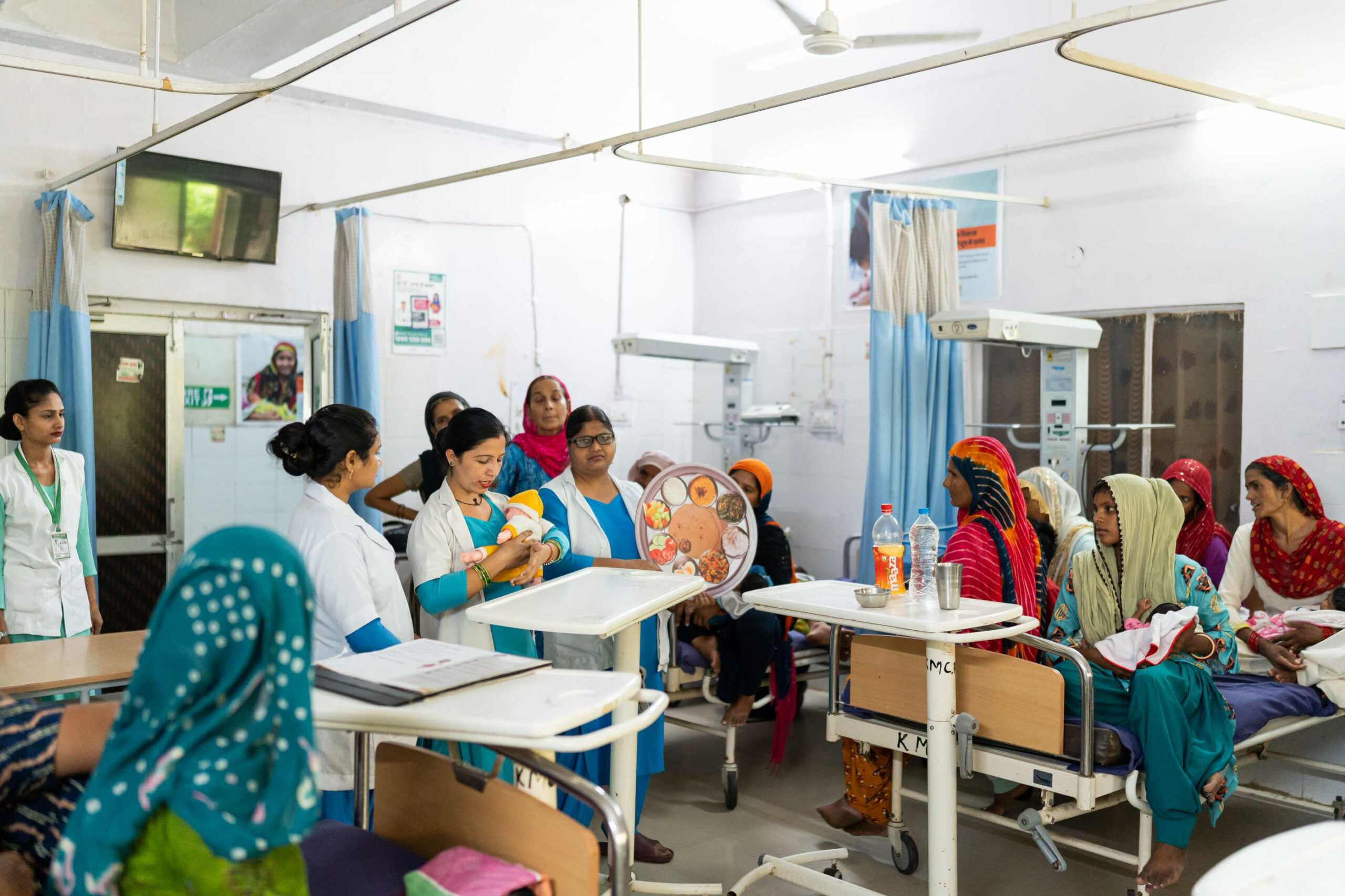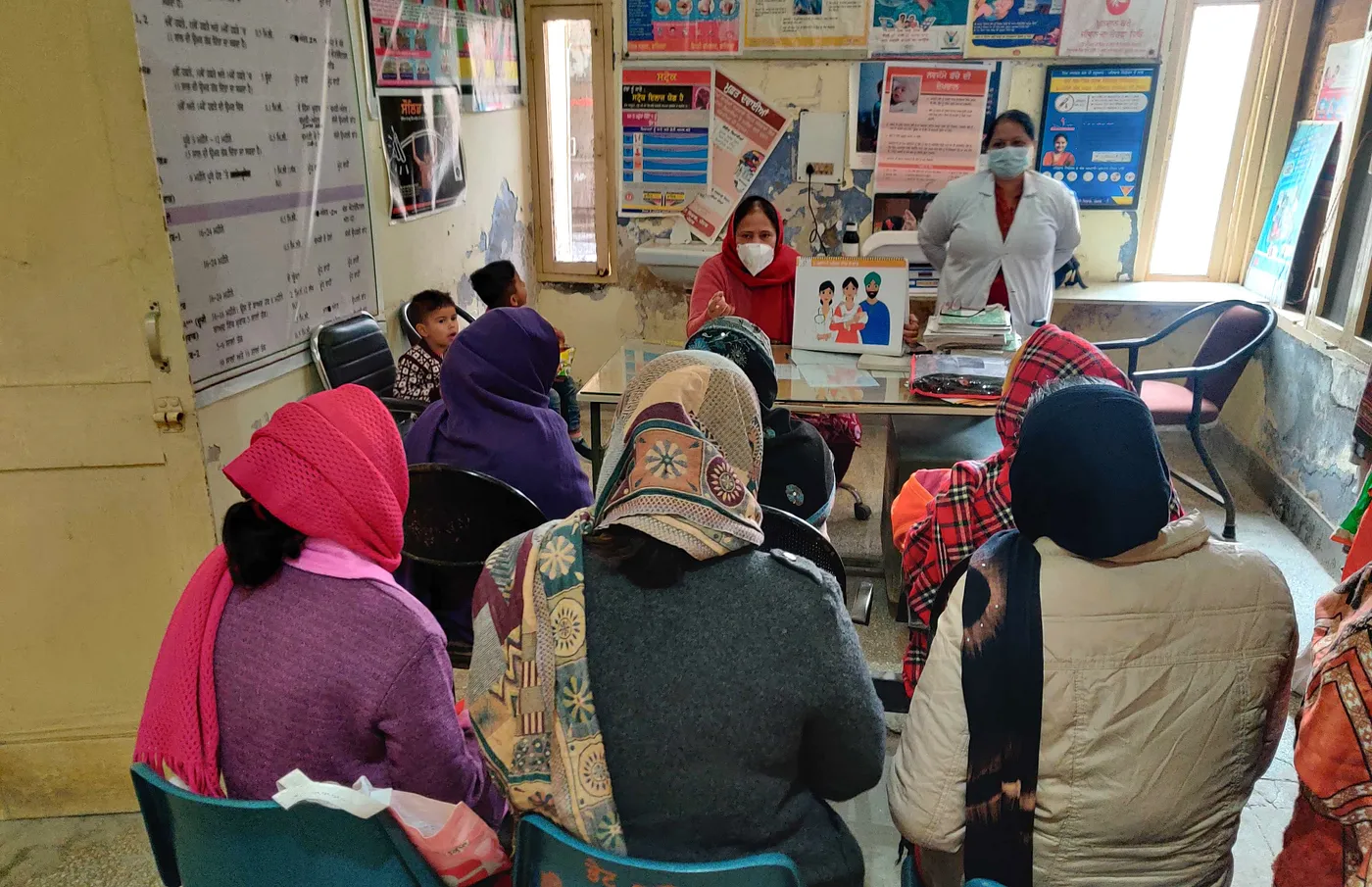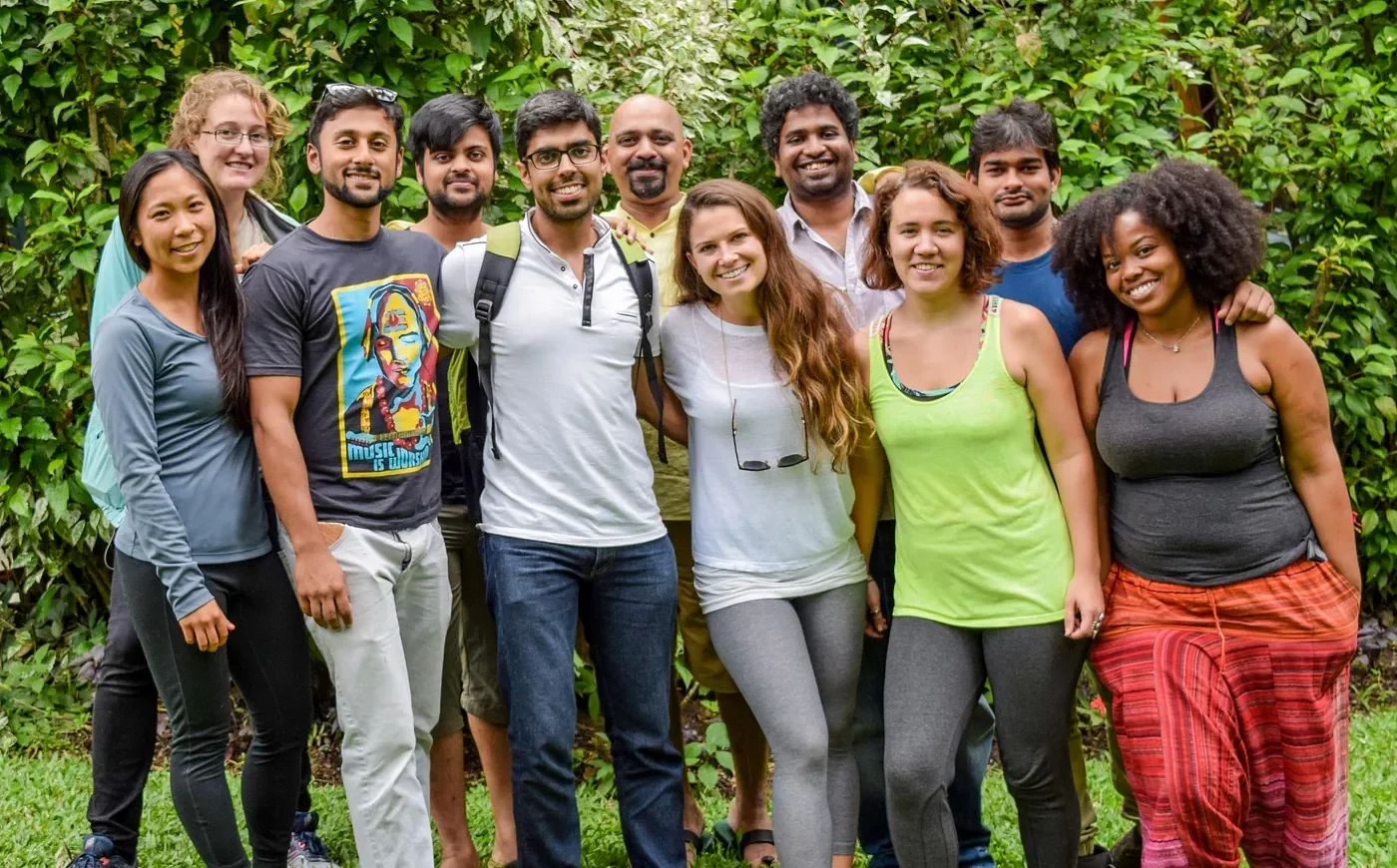
Five observations from nurses implementing the Care Companion Program
What we learned and next steps.
“I was always drawn to the white uniform, that’s why I came into this profession. There are challenges in our work, but I still feel proud wearing my nurse’s uniform. Serving people through my work makes me happy.” — A nurse from Maharashtra
Nurses are the backbone of any healthcare system, playing a pivotal role in patient care and recovery. However, despite their dedication, nurses often face many systemic challenges such as a high nurse–to–patient ratio, extended work hours, and competing priorities. Not only does this make high-quality care delivery difficult, but it also impacts nurses’ motivation and job satisfaction.
As part of Noora Health’s Care Companion Program (CCP), healthcare workers are equipped with essential skills, knowledge, and tools to effectively support patients and caregivers in their healthcare journey from hospital to home. Traditionally, in Indian hospitals, nurses go from bed to bed, explaining symptoms, treatment options, and preventive measures — an extremely time-consuming practice. By establishing group counseling sessions where nurses don’t have to repeat information individually, the CCP helps them save time and creates opportunities for peer-to-peer learning.
Given the challenging environment nurses work in, we continually seek to understand their experiences of implementing the CCP and how we could better support them. To this end, we conducted a qualitative study with 18 nurses from various district and sub-district hospitals in Punjab, Madhya Pradesh, Maharashtra, and Karnataka, who have been involved with CCP for at least six months.
Here’s what they had to say:
1. It helped strengthen the existing patient counseling process
From unidirectional, individual counseling, nurses now conduct dynamic group sessions as part of the CCP. Though this shift was initially challenging, it eventually helped streamline the process and ensured that no essential topics were missed. Nurses also expressed that they see a significant shift in engagement in hospitals, with patients and families asking more questions. This enthusiasm reinforced the nurses’ motivation in their work even beyond CCP sessions.
The most encouraging feedback, however, was hearing most nurses say that the CCP has become an indispensable part of their daily practice.
In the words of a nurse from Punjab, “Even if you tell us that we no longer have to conduct these sessions, we will continue to provide the right knowledge and guidance to patients and their families.”
2. It offered opportunities for personal and professional growth
As nurses integrated the CCP into their everyday work, they acknowledged its importance in helping them grow both personally and professionally. “I’m more confident now,” said a nurse from Punjab. “Initially, I used to feel a little shy to speak in front of the patients, thinking I would have to explain everything from memory and that it wouldn’t be possible. But now I’m very fluent and confident. That is because of all of the constant training, practice, and positive feedback.”
Initially riddled with hesitation and apprehensions, the nurses were concerned about how patients would receive the CCP sessions. As they implemented the program, their confidence grew, as did their ability to seamlessly adapt content to different languages and contexts of the participants.
For many nurses, the CCP training was also the first time in many years that they updated their existing knowledge and skills. Explaining how the training served as a bridge between theoretical knowledge and hands-on practice, a nurse from Karnataka said, “It’s been years since I studied, and I had forgotten some details. After the training, I was able to recall the correct order of certain procedures.” This shift from traditional counseling practice to dynamic, participatory sessions not only provided them with an opportunity for upskilling but also significantly boosted their motivation.
3. Nurses confidently led, innovated, and took ownership of CCP, making the sessions more impactful
Understanding that education goes beyond just information delivery, nurses felt motivated to innovate within the CCP. Often, they integrated personal stories, community experiences, and even moments from celebrities’ lives into their sessions. Acknowledging the importance of cultural relevance, they utilized proverbs and dietary advice rooted in local traditions, making the content relatable and impactful for the participants.
A nurse from Maharashtra shared, “We learn about Kangaroo Mother Care, but kangaroos aren’t a familiar animal for people in our country. Instead, we ask them to imagine a monkey and how it keeps its baby close to its chest, and then show them how to do the same.” By ingeniously using familiar animals like monkeys to explain concepts, nurses ensured that even the most complex ideas were simplified, and resonated deeply with their participants.
Nurses also made the sessions more collaborative and tangible by involving medical staff and participants in hands-on, practical demonstrations. Through interactive elements like cross-questioning and group discussions, they created a space for active participation and a multi-way exchange of ideas and experiences.
Simultaneously, in a move towards inclusivity, the nurses also encouraged male caregivers to participate in newborn care.
Said another nurse from Maharashtra, “Women are usually aware of 50 percent of what I tell them, but men aren’t. So I make sure to ask one male caregiver to do the demonstration on how to hold the baby with me. I tell them that it’s their equal responsibility to take care of the child. Some feel ready to do it, some feel shy, but we try to encourage them by creating a non-judgemental environment.” In a few cases, nurses even held separate sessions for male caregivers where they delved into practical skills, such as correctly holding a baby, ensuring proper coverage, and managing essential household tasks related to baby care.
4. It helped nurses reconnect with their work and stay motivated
Talking about her work, a nurse from Punjab shared, “Sometimes I feel so unmotivated to conduct sessions and I don’t feel like doing anything about it. But when the patient repeatedly comes to me with health-related questions, I’m reminded about the importance of conducting a session.”
Despite moments of demotivation, the nurse’s dedication to addressing patients’ needs and concerns highlights the importance of CCP sessions. According to the nurses we spoke to, seeing patients engage with and apply the information shared with them reinforced their commitment and dedication to their roles. Delivering a CCP session became more than a task; it was an opportunity for impactful conversations between the nurses and patients.
“I feel more connected to my work. If I go on leave for three to four days, I start to wonder when I can go back. The CCP allows me to meet so many different people, explain things to them, listen to their stories, and solve their problems,” added a nurse from Madhya Pradesh. Positive feedback and validation from patients and colleagues also serve as important motivators for nurses. Encouraged by the impact of their work, nurses actively sought opportunities for self-improvement, staying updated, and expanding their knowledge base.

5. Nurses brought up the need for additional support
Beyond the existing training and feedback offered by Noora Health, the nurses we interviewed spoke about other ways in which we could support them and their work. One important area that came up was providing CCP training to other community-level healthcare workers like ASHA workers and Anganwadi workers. Nurses felt that this would equip their colleagues with the knowledge, confidence, and skills necessary to impart quality education to patients, thus ensuring that caregiver training continues beyond the four walls of the hospital.
Nurses also spoke about the areas in which they might need continuous support from the Noora Health team to help sustain motivation. They shared how ongoing training and learning would allow them to keep learning and growing in their roles as health educators. “Although the training has been done once, if we do it again and again, then every staff member will be able to build their knowledge. Also, that way the patients will receive it from many sources, which will help them remember it better,” suggested a nurse from Maharashtra.
Many nurses also brought up certificates and how such small, but meaningful, tokens of appreciation were integral to keeping their spirits up. One nurse from Maharashtra said, “After the training, we were given certificates and our pictures were put on WhatsApp statuses. That day we were congratulated by a lot of people and received many blessings. Other colleagues started sending us their patients after that — we became a bit famous in our circle. I’ve done other training but never received such recognition.”
Another nurse from Madhya Pradesh added, “It felt good to be called a ‘master trainer’ in front of everyone. Now when people have questions, they come to me. I like being recognized in this way.”
The narratives of the nurses highlight their challenges, motivations, and unwavering commitment. We plan to incorporate these learnings into all of our trainer-facing initiatives, including training of trainers experiences, learning platforms, or future understanding of CCP impact. As we reflected on the nurses’ experiences, it became evident that the CCP is more than just a program; it is a catalyst for transformation, where knowledge is a tool for change, and nurses are the torchbearers of that change.



